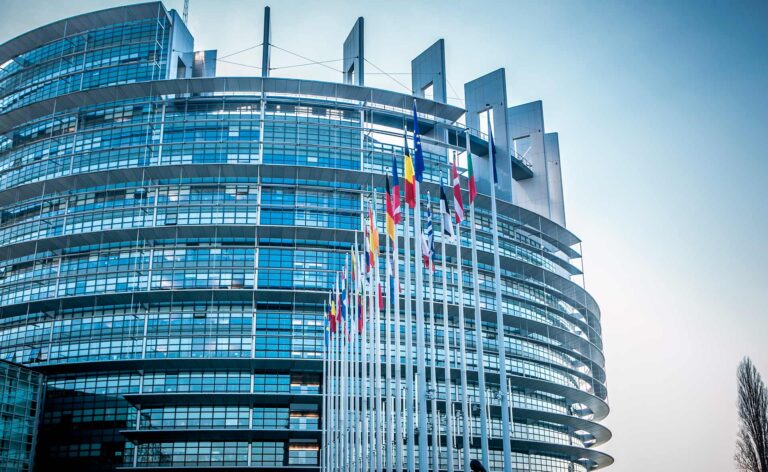Seven Keys to Financial Regulation in 2022
The finalization of Basel III, post-COVID regulation, artificial intelligence and the crypto world, or international coordination in the supervision of sustainable finance are some of the trends that will mark the regulatory agenda in 2022. Santiago Fernández de Lis, Head of Regulation at BBVA, reviews the keys to financial regulation in the year that has just begun.

The transposition of Basel III, fundamental for banks in Europe and Spain.

The finalization of Basel III will bring the comparability of the internal models that banks use for capital consumption into the spotlight. In this sense, it is to be hoped that these reforms will restore a more level playing field between banks with a more aggressive use of internal models and those with a more standard business model, which include most Spanish banks. On this point, Fernández de Lis stresses that the European Commission's Basel III transposition proposal is balanced and provides for some adaptation to the particularities of the European banking sector. Negotiations between the Commission, the Council and the European Parliament will begin in 2022, where some aspects of this proposal can be fine-tuned.
Current debate on post-COVID regulation

According to BBVA's regulation expert, the COVID crisis has shown the resilience of the banking system, which has allowed the flow of credit to families and companies to be sustained. It is also worth highlighting the flexibility with which the authorities have reacted, introducing temporary relief measures. One issue that has been the subject of intense debate is the wariness in the use of banks' capital buffers, despite the fact that the authorities have encouraged the favoring of credit over the maintenance of capital levels. This debate is partly due to fears that the market will penalize banks with lower capital levels, as well as uncertainty about the course of the pandemic and the recovery. A key reflection has therefore begun on how to improve the capacity to release these buffers.
Banking union, more necessary than ever in the wake of the COVID crisis

The completion of the banking union remains a strategic objective of the European Union. To this end, Fernandez de Lis believes it is incongruous that with a unified regulation, supervision and resolution framework for banking crises, deposit protection schemes remain national. In recent years, there has been little political interest in completing the banking union, but the European reaction to the COVID crisis has generated a remarkable pooling of risks, with instruments such as the NGEU funds and the issuance of European debt to finance them. For the coming months, the new German government's program envisages a bank deposit reinsurance scheme that could be a first step towards a single deposit insurance scheme.
Digital euro must adapt its design to minimize risks

The digital euro is partly a reaction to competition from cryptocurrencies and the possibility that other central banks may also issue digital currencies, so it is important that work is also done on the regulation of cryptoassets and a framework for cooperation between central banks in the design and implementation of digital currencies. According to BBVA's Head of Regulation, identifying the problems to be solved with the digital euro beforehand is essential, so that its design is adapted to the solution of these issues and risks are minimized. Fernández de Lis also points to the need for a smooth connection with existing payment mechanisms, which requires prior and complex technical work.
Artificial intelligence, large platforms and data law, the pillars of digital regulation in Europe

In digital finance, there are three major regulatory projects that stand out at the European level. First, the regulation on Artificial Intelligence (AI), at an early stage of negotiation. BBVA is confident that some aspects of the proposal will be improved to better adjust the definition of AI to those techniques that are truly advanced. Fernández de Lis argues that finding a balance between regulation and innovation is very important, because the development and use of AI is key to Europe's competitiveness.
Secondly, the new regulation on large digital platforms (DMA), which is expected to be approved in the first half of 2022. This will be a very important piece of legislation to generate a more balanced competitive playing field in digital markets. It should also allow users to access and share their data easily, something that BBVA believes should not be limited only to large digital platforms, but should be extended to all sectors of the economy. Thirdly, the future Data Act, which the European Commission will propose in February, should be an opportunity to move in this direction, reinforcing the right to personal data portability, to make it effective, and introducing a similar right for companies.
The need for greater coordination in the regulation of the crypto world

Negotiations on the new European cryptoassets regulation (MiCA) are moving forward and BBVA is confident that it will be approved in the first half of 2022. In the expert's opinion, the important thing is for Europe to have a clear regulatory framework for the provision of services related to cryptoassets (custody, exchange, etc.) as soon as possible, as there is a growing demand from customers. On the other hand, at the international level, it points to the need for greater coordination in the regulation and supervision of the crypto world, which poses challenges such as stablecoins or decentralized finance (DeFi).
Regulatory balance between globality and local aspects of sustainable finance

Sustainable finance regulation is progressing at a remarkable pace, especially in Europe. However, international coordination in this area is key, says Fernández de Lis. The expert points out that important steps are being taken, such as the announcement at COP 26 that the global standards authority (the IFRS Foundation) has formed a committee to prepare a single international green standard. For banks that operate in more than one geographical area, applying different regulations in each one, while complying with the requirements at the consolidated level in the country where their parent company is located, is a major complication. This is why he believes it is vital for authorities to strike a balance between appropriate coordination of standards and some flexibility in applying them in countries where standards are not as evolved.